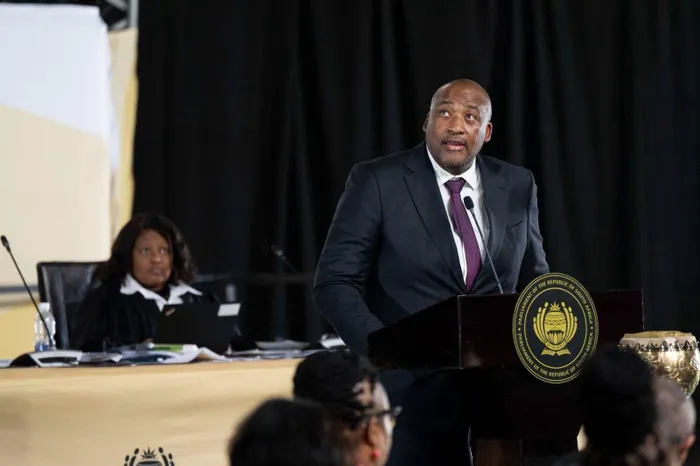Minister Gayton McKenzie faces backlash over support for Starlink in South Africa

Social media users have criticised Minister McKenzie for supporting policy to ease B-BBEE rules for Elon Musk’s Starlink
Image: Armand Hough/Independent Newspapers
South Africa’s Minister of Sports, Arts and Culture, Gayton McKenzie, has ignited a firestorm of criticism following his public endorsement of a policy proposal that seeks to relax Broad-Based Black Economic Empowerment (B-BBEE) requirements for licensing satellite communication services, including Elon Musk’s Starlink.
His comments, made via social media platform X (formerly Twitter), have resonated poorly with many who view them as contradictory to his previous commitments.
In his post, McKenzie, who is also the leader of the Patriotic Alliance (PA) and a member of the Government of National Unity, expressed optimism about the potential of Starlink to deliver faster and more affordable internet access in a nation grappling with exorbitant data costs.
“Your ideology is more important than the very people you claim to serve. Starlink will give greater and cheaper access in a country with the most expensive data prices,” wrote McKenzie, emphasising his enthusiastic support for the initiative.
This bold statement comes on the heels of Communications and Digital Technologies Minister Solly Malatsi’s recent gazetting of a policy direction on Equity Equivalent Investment Programmes (EEIPs) in the Information and Communication Technology (ICT) sector.
The intention, as outlined by Malatsi, is to foster broadband access while providing regulatory clarity for investors in this vital area.
He noted that digital infrastructure can unlock myriad opportunities, enabling citizens to seek employment, pursue education, and launch businesses.
However, McKenzie's support did not go unnoticed, igniting a wave of backlash across social media platforms. Critics have been vocal in accusing him of hypocrisy and failing to deliver on previous promises, including initiatives related to arts empowerment and sports development in underserved communities.
Sihle Lonzi, an MP from the Economic Freedom Fighters (EFF), pointedly questioned McKenzie’s commitment to his portfolio, while other users echoed sentiments of disappointment and disillusionment.
Comments ranged from calls for accountability over McKenzie’s unfulfilled promises, with one user lamenting, “When are you delivering on your promises?", to accusations of misleading the public concerning Starlink's affordability.
“Failure to provide the figures will mean one thing - you are misleading the nation,” one frustrated commenter stated.
The unease surrounding the proposal intensified with revelations that the policy easing followed a high-profile meeting at the White House, allegedly facilitated by South African billionaire Johann Rupert.
Reports indicate that Rupert advocated for the rapid incorporation of Starlink into South Africa's digital landscape, citing critical socio-economic challenges such as crime and economic stagnation as compelling reasons.
The meeting was reportedly attended by President Cyril Ramaphosa and US President Donald Trump.
Rupert urged the fast-tracking of Starlink’s entry into South Africa, citing crime, economic stagnation, and the need for technological advancement.
“We need Starlink in South Africa,” Rupert said.
Despite McKenzie’s fervent support for the policy, it has faced staunch opposition from several political factions, including the EFF, the uMkhonto weSizwe Party, and the ANC Youth League, all of whom have denounced the gazetted proposal.
The situation has prompted the Portfolio Committee on Communications and Digital Technologies to summon Minister Malatsi to brief Parliament regarding the controversial policy about easing B-BBEE requirements for satellite service licensing.
Committee Chairperson Khusela Diko underscored concerns that the recently issued directives may conflict with the Electronic Communications Act and disproportionately favour SpaceX, the operator of Starlink.
As South Africa navigates the complexities of digital policy and economic empowerment, the unfolding debates surrounding Starlink’s entry spotlight the tensions between technological advancement and the imperative to foster equitable economic opportunities.
DAILY NEWS